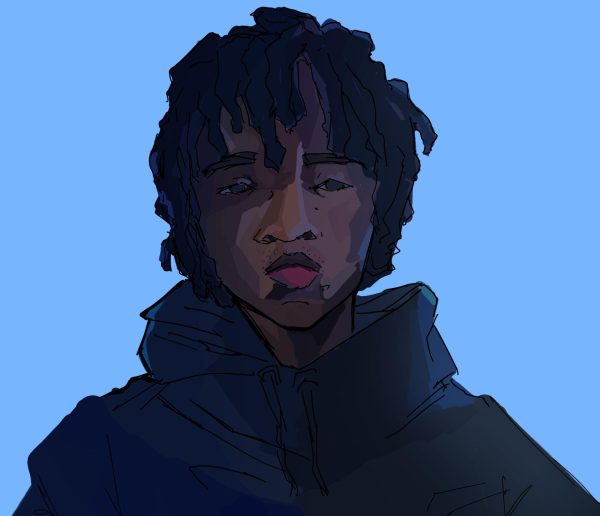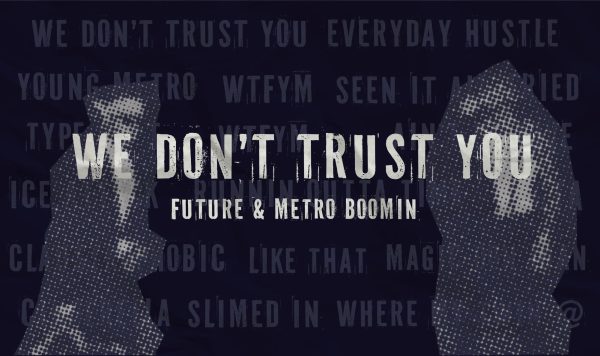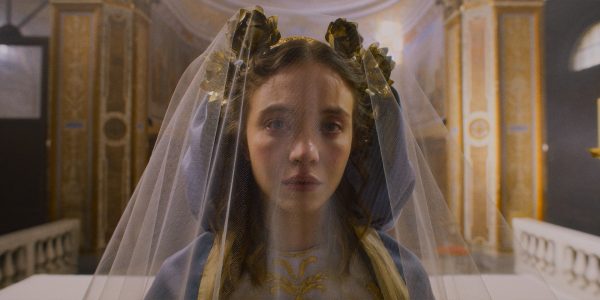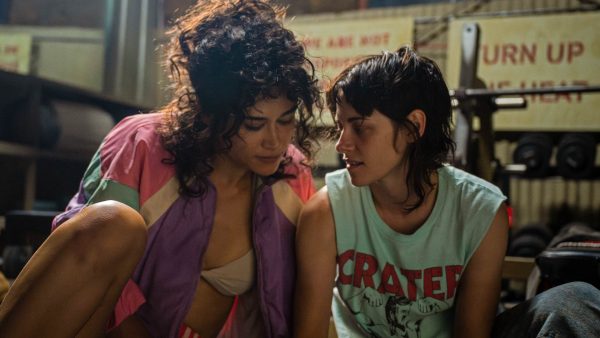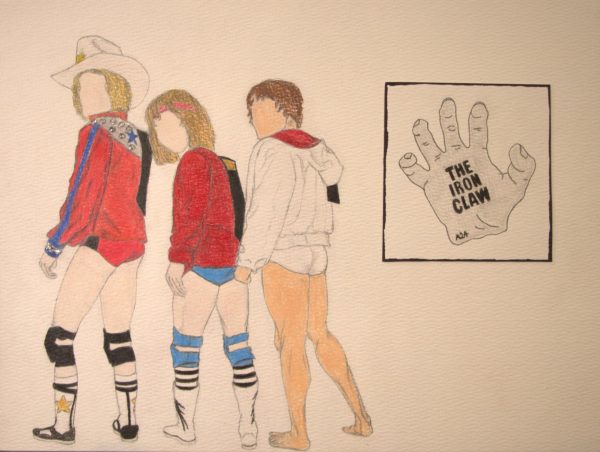Disjointed movie takes on heavy subjects with bizarre comedy
“Drop Dead Fred” was called a “putrid mess” by Leonard Maltin in 1991 after the movie opened to poor reception. The movie stars Phoebe Cates post-“Fast Times at Ridgemont High,” and “Gremlins” as Lizzie, a character who is emotionally stunted from a childhood with a controlling mother. As an adult, she is blindly in love with her impossibly disgusting husband; a womanizer and a sleazy pig, Charles.
When Lizzie is dumped by her husband, loses her job and gets her car stolen on the same day, she has to go back home to her mother, where all her troubles stem. That is where Drop Dead Fred, Lizzie’s imaginary friend, is awakened from his entrapment in a jack-in-the-box. Played by Rik Miyall, a British comedian, he wears garish green outfits and has Crayola red messy hair.
A manic, anarchist psychic energy from Lizzie’s troubled childhood, Drop Dead Fred re-enters her adulthood and wrecks everything. In one scene he sinks a houseboat while playing pirates with a reluctant Lizzie.
Through a series of flashbacks, we see the history of Lizzie and Drop Dead Fred, scenes of muddy vandalism and rebellion. The movie was marketed as a comedy fantasy for children, but fails to squeeze into this genre. Tim Burton comes to mind, but its tone is more muddled than the crisp freak-show feel of “Beetlejuice.” The plot falls somewhere on the spectrum of dark fantasy and “Mommy Dearest,” unfortunately.
Polly, Lizzie’s mother, is an abhorrent parent who does all but tortures eight-year-old Lizzie. Although Drop Dead Fred appears to sabotage Lizzie’s adult life, we see through the flashbacks that Drop Dead Fred is actually a presence of encouragement and caring in her life.
To say there are redeeming qualities would not quite explain why “Drop Dead Fred” is fascinating. There is no balance of pain and humor. The storytelling is uncomfortable. But the movie does ask the audience to accept the emotional state of Phoebe Cate’s character, which is really the centerpiece of the movie.
As a child, Lizzie, also known as Snotface, is much more resistant to her mother’s abuse. She is a bit like Bart Simpson. Bart’s appeal is that he accepts his limitations. Bart knows he is not as brilliant as Lisa, but he does what makes him happy. His antics, although disruptive, are sometimes good-natured.
The same could be said for Drop Dead Fred and the young Lizzie. As an adult, Lizzie has been beaten down and is submissive to her mother and her husband. Drop Dead Fred returns to Lizzie’s life just in time to instill some resilience and self-confidence.
The unbalanced story telling is not as bad as “Troll 2.” “Drop Dead Fred” attempts to deal with tumultuous material such as child abuse, but it coats this subject matter in eccentric humor.
It is not the delicate juggle of humor and pathos in Nicolas Hornby’s “About a Boy.” Pointedly, there is nothing delicate about it. Except, perhaps, the last scene. A metaphoristic journey into Lizzie’s subconscious, Drop Dead Fred leads Lizzie past dream states of Polly and Charles.
Finally, embracing Drop Dead Fred with a sweet kiss, Lizzie awakens as a brighter, stronger soul. This weird movie is accidentally beautiful.


